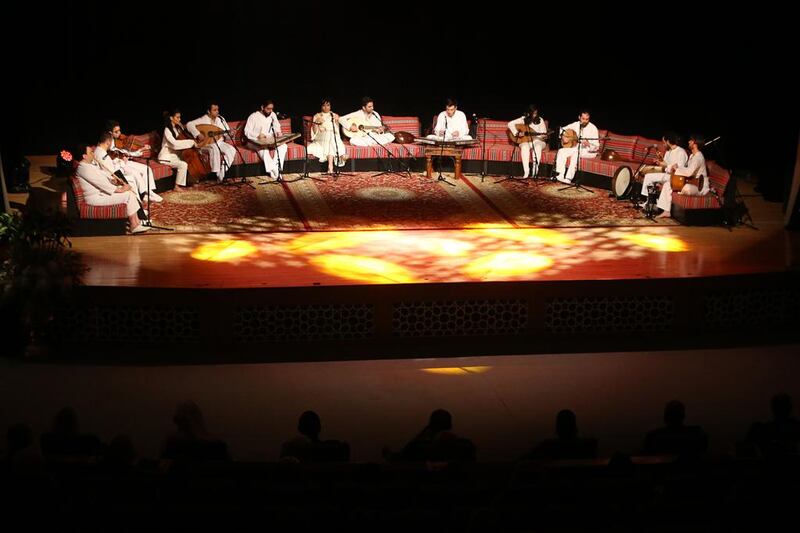The Abu Dhabi Festival kicked off its main music programme on Monday with a journey back to classical Arab music.
The Asil Ensemble took the Abu Dhabi Theatre stage for a performance showcasing the intricacies of the historic genre with its operatic, poetic and spiritual motifs.
Led by the oud virtuoso and musicologist Mustafa Said, the concert was split into two parts – the first exploring some of the more influential musical modes in the region.
The stirring instrumental opener Persev, composed by the late Asem Bey, was an introduction to the rast musical mode, one of the most popular that was used by regional artists during the Ottoman era.
A female vocalist, Zaynab Abu Taler, was introduced in the follow-up, The Muwashshah.
It was an intense piece, with the soprano’s vocals soaring over a sea of ouds before moving on to duel with the two percussionists. Perhaps sensing some of the exhaustion from the crowd, the ensemble took a more whimsical turn with the improvisational Taqsim before Abu Taler returned for the poetic A Mawwal.
After the intermission, the group returned to perform a suite of contemporary works.
The five-song cycle featured Said’s compositions paired with translated lyrics from the 12th-century Persian poet Omar Khayyam.
While Said’s passionate wails in Heen Judu Illah may evoke the region’s past, the sense of renewal was underscored by the exuberant playing from the young ensemble.
It was an evocative performance, proving that the region’s musical heritage has plenty to reveal to modern musicians and audiences.
[ sasaeed@thenational.ae ]






